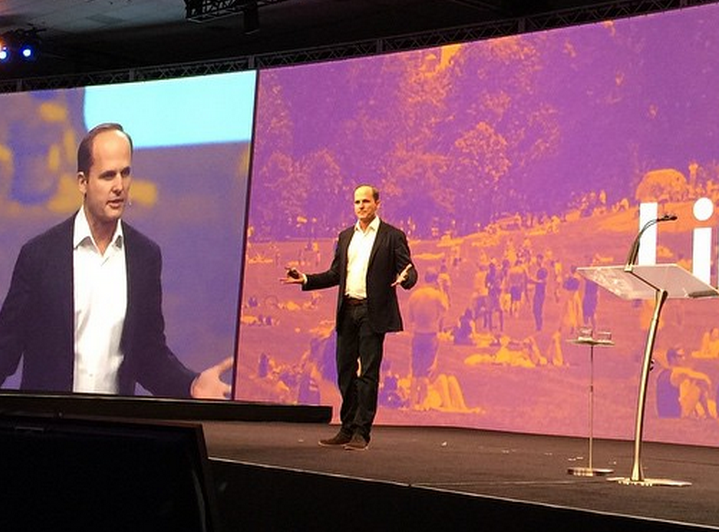How does Google go about hiring? There’s no end of hearsay, urban legends and second-hand stories about the giant tech company’s idiosyncratic approaches to finding the best people. For first-hand insights, though, there’s nothing like a fresh update from Laszlo Bock, Google’s senior vice president for people operations.
At LinkedIn’s Talent Connect conference in San Francisco today, Bock began with a bit of myth-busting about the ways that his Mountain View, Calif., company goes about finding the right people. A key point: If you’ve heard that Google likes to pose brain-teaser questions to candidates — like why manhole covers are round, or how to get out of a blender if you’ve been shrunk to be just an inch high — your information is out of date.
“I hate brainteasers,” Bock declared. “There’s no evidence that they suggest how people will perform on the job. Some of our interviewers still ask them. I’m trying to get them to stop.”
With that canard out of the way, Bock pulled back the curtain on how Google actually does approach hiring. Among his points:
- Structured interviews work best. Google wants all its interviewers to work from the same basic list of questions when they meet a candidate for a particular job. There’s still room for customized follow-up questions, depending on what answers emerge. But when interviewers make it up as they go along, Bock says, that can create problems of bias and inconsistencies. “Use science,” Bock says. “Make sure your managers interview this way. If they don’t, throw out their feedback.”
- Google’s best recruiter is Allan Eustace, a senior vice president of engineering and research. He joined the company in 1999 as employee No. 42; since then he has hired hundreds of people. His edge, Bock says, is his ability to get candidates fired up the ways they could create meaning in their lives by taking a job at Google.
- Google looks for four key traits in candidates: general cognitive ability, leadership, Googleyness and role-related knowledge. They’re listed in that order for a reason. Bock says that Google likes to hire curious, quick-learning generalists who can master whatever challenges are thrown at them. That’s why general smarts are at the top of his list; specific skills at the bottom.
- Leadership isn’t necessarily measured by what titles people have held. Google is looking for people who can see a problem, step in, help solve it — and then relinquish power if necessary so that some one else can handle the next challenges. Bock calls this “emergent leadership.”
- Everyone at Google defines cultural fit (a.k.a. “Googleyness) differently. “It isn’t about whether you’re a bro-grammer, or are just like us, or fit a narrow mold,” Bock says. Instead, he says, Google is looking for people who are comfortable with ambiguity, have intellectual humility and can bring something new to the mix.”
Summing up, Bock exhorted the recruiters in his audience to “never ever, ever compromise on quality,” explaining: “It’s toxic. If people see poor performers all around them, they decide they don’t need to work that hard. Your very best people will leave.”
Instead, Bock said, “give candidates a reason to join. We all want meaning. We all want to be happy and to enjoy freedom from want. Work for most people is a pretty mediocre experience. It doesn’t have to be.”
 This article was written by George Anders from Forbes and was legally licensed through the NewsCred publisher network. Photo Credit ThisisLars. SmartRecruiters is your workspace to find and hire great people.
This article was written by George Anders from Forbes and was legally licensed through the NewsCred publisher network. Photo Credit ThisisLars. SmartRecruiters is your workspace to find and hire great people.






